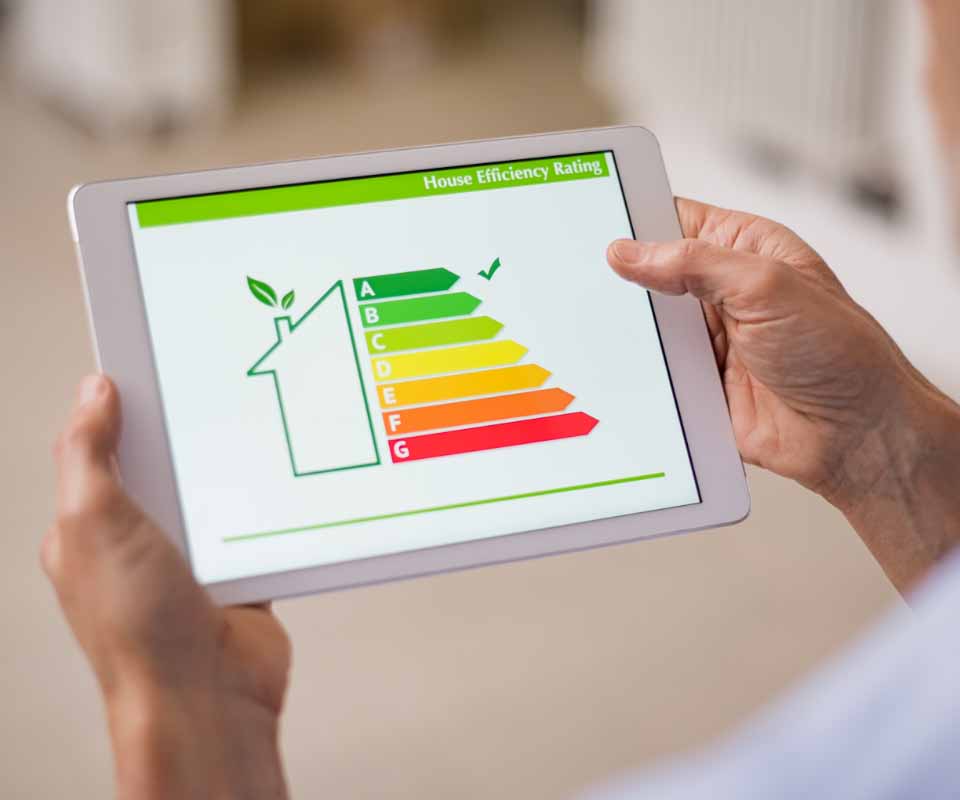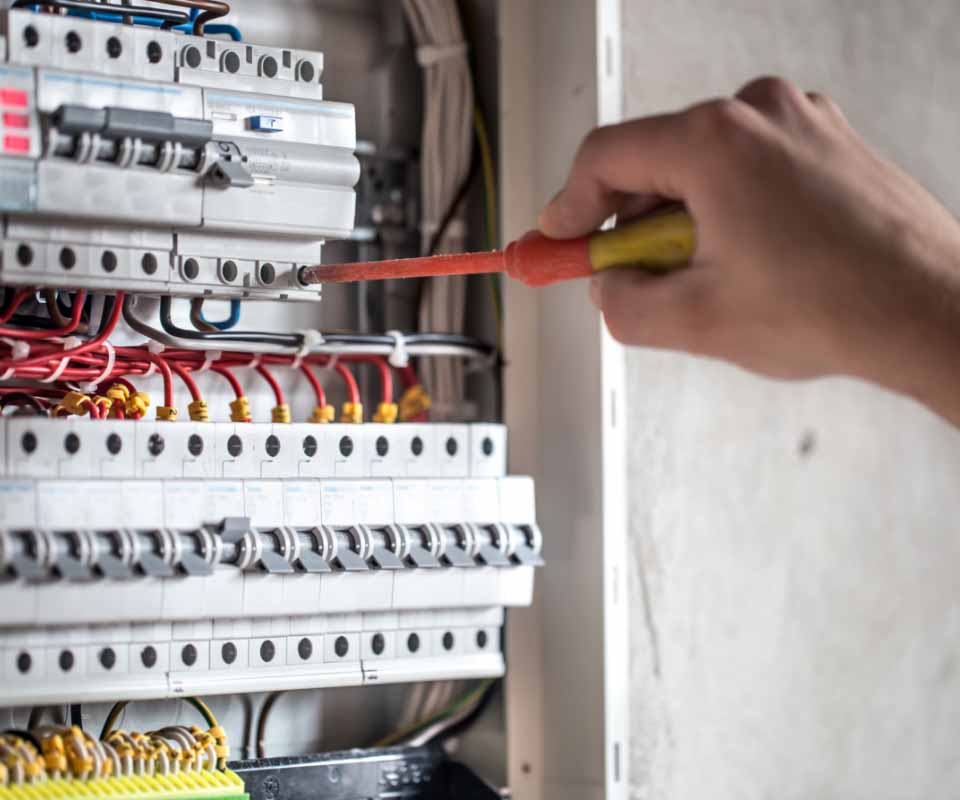Our services include Energy Performance Certificate (EPC), Electrical Installation Condition Report (EICR), Gas Safety Inspections and Legionella Reports.
Book Report Services
An EPC measures the energy efficiency of a property and is a legal requirement for both commercial and residential buildings that are sold or rented in the UK.
EPC Reports
An EPC measures the energy efficiency of a property and is a legal requirement for both commercial and residential buildings that are sold or rented in the UK. They are valid for 10 years and provide potential buyers or tenants an indication, on a scale, of how energy efficient a property is, as well as providing recommendations on how energy efficiency could be improved. For more information click EPC reports

Legionella Risk Assessment Reports
Legionella Risk Assessment Reports are used by landlords as part of their legal responsibilities to ensure the health and safety of their tenants. The legislation requires that landlords carry out risk assessments for Legionella bacteria that causes Legionnaires Disease and thereafter maintain proportionate and appropriate control measures to minimise the risk. Tenants should be advised of any control measures put in place that should be maintained. For more information click Legionella Risk Assessments

EICR Electrical Inspections
Under UK law, landlords of both commercial and residential buildings must have an Electrical Installation Condition Report (EICR) completed at least every five years to certify the electrical safety of a building. For home buyers, obtaining an EICR is important to determine that the electrical system in a home is safe and properly installed.

How can we help?
If you still can’t find what you’re looking for, please do not hesitate to give one of our experienced team a call on 0208 989 0545 or email [email protected]
How can we help?
EPC FAQ +
What exactly is an Energy Performance Certificate and why do I need one?+
In accordance with the European Energy Performance of Buildings Directive, by 2009 all buildings in the UK that are constructed, sold or rented were required to have to have an Energy Performance Certificate (EPC).
An EPC gives information on the energy usage, running costs and potential improvements that could be made to reduce the energy usage and carbon dioxide emission of the property. An assessment is carried out by an accredited Domestic Energy Assessor who takes the information and processes it with specialist software which gives a rating for your property.
We need an EPC because our environment is under threat from climate change and a major contributor to this change is the burning of fossil fuels for energy production. Reducing our Carbon Dioxide emissions by ensuring we use energy efficiently in the home, work and whilst travelling can help reduce the effects of climate change
The first efficiency ratings were for electrical appliances to enable the consumer to make an informed decision on their purchase with regards to climate change and running costs. This rating system was then further extended to buildings in the form of an Energy Performance Certificate which gives the owner or potential purchaser an indication of the energy performance and running costs of the property with the additional benefit of showing where improvements can be made.
As stated earlier, all homes bought, sold or rented now require an EPC.
Who needs an EPC?+
The EPC is required by law when a building is constructed, sold or put up for rent. Once you have an EPC for a home for sale, it is valid for three years.
- Sellers or buyers of homes - All sellers of homes need to ensure that they provide a Home Information Pack which includes an EPC for potential buyers.
An EPC must be made available to a potential homebuyer free of charge.
- Builders - An EPC needs to be provided to buyers of newly built properties.
- Landlords - If you are a landlord, you’ll need to make an EPC available to prospective tenants the first time you let a home after 1 October 2008. An EPC is only required for a property which is self-contained, and is valid for 10 years.
An EPC isn’t required when a tenant rents a room and shares facilities.
- Tenants - If you are interested in renting a property then an EPC must be made available to you free of charge. An EPC is only required for a property which is self-contained, and is valid for 10 years.
If you are a prospective tenant, an EPC isn’t required when you rent a room and share facilities.
Even if you do not fall into the above categories, you can still apply for and receive an EPC. This may be because you want to know what the energy efficiency of your home is, and make improvements suggested by the recommendation report.
Price - For information on our prices to conduct an EPC report at your property please contact us on 0845 539 0101 or email [email protected]
What goes on during a domestic energy assessment?+
A domestic energy assessment of your home will involve both an internal and external inspection of the property. For the purposes of obtaining an Energy Performance Certificate, they can only be undertaken by a fully accredited Domestic Energy Assessor (DEA) or Home Inspector.
When the DEA arrives, he/she will need to inspect, and make note of, the following property details:
- The year of property construction.
- Walls and roof construction.
- Signs of wall-cavity insulation.
- Energy-saving "green" devices (Such as solar panels, for instance).
- Number of double glazed windows and when they were installed.
- Number of open or closed fireplaces.
- Make and model of boiler and the type of flue and fuel used.
- Number of low energy light-bulbs.
- Type of heating system used and controls. (Wall thermostat etc.)
- Roof insulation and thickness.
- Measure the thickness of the hot water cylinder jacket or foam.
- Check for excessive window area in larger houses and take measurements of conservatories and extensions.
- Note the number of habitable rooms that are heated.
- Measure the internal or external areas of the home.
- Sketch and make notes relating to home and room layout
The assessor will typically be on site for an hour although this can of course vary depending on the property. Your certificate will normally be completed within 48 hours.
What else does an EPC tell you?+
The ratings are measured using the same calculations for all homes, so you can compare the energy efficiency of different properties.
Part of the EPC is a report which will list the potential rating that your home could achieve, if you made the recommended changes.
Who will have access to my EPC?+
The details of an EPC are not in the public domain. Your property's EPC will be stored in a central database along with a unique identifying number. Access to the record can only be made via this reference number which is available only to the owner/seller and potential buyers.
The owner of the property will have a copy of the EPC and potential buyers or tenants will gain access to it via the above mentioned database.
Previously a copy was provided in the Home Information Pack, but that was repealed in 2010.
What if my EPC rating is bad?+
Although a domestic energy assessment is mandatory, you are not under any obligation to bring the property up to any minimum standard.
The Energy Performance Certificate is very useful to the owner on advising where improvement can be made to the property and gives a guide to the associated energy costs.
Can I produce my own EPC?+
No, an EPC can only be provided by a qualified Domestic Energy Assessor or Home Inspector.
Where can I find out more information?+
Housing information:
Department for Communities & Local Government
http://www.communities.gov.uk/housing/buyingselling/homeinformation/
Housing and Local Services
https://www.gov.uk/browse/housing
Energy Performance Certificate information
Direct - EPC Home Page
Houses in Multiple Occupation (HMO)
Gas Safety Regulations
Electrical Safety Regulations
www.dti.gov.uk (PDF)
Furniture and Furnishings (Fire) (Safety) Regulations
www.dti.gov.uk (PDF)
How to improve your EPC Rating?+
When a Domestic Energy Assessor is carrying out an Energy Performance Certificate review, the software used has to make common assumptions about energy use and there is nothing that we can do to change this.
However, the assessor might need to make some assumptions themselves and when this occurs they’re obliged to usually assume the worst. For example when a light fitting is discovered to be empty they will usually need to assume that when the bulb is replaced it’ll be with an incandescent bulb instead of a low energy bulb which is much more efficient. This is where we can make a difference to the overall rating.
There are many inexpensive measures you could take to improve your Energy Performance Certificate rating, such as replacing your inefficient boiler for a modern Band A condensing boiler or increasing your loft insulation and filling your cavity walls. There are ways to easily and cost effectively improve your EPC rating before the Domestic Energy Assessor visits your property.
Here are just a few simple measures that will show a distinct improvement in your energy rating:
- Give FULL Access - The first and most important thing to do is to make sure that the assessor can get access to all the parts of the property that they are inspecting, as any assumptions they’re forced to make are likely to result in a worse EPC rating. For example if it is not feasible for the assessor to access the loft region, either simply because the hatch is locked then the assessor will need to assume no insulation is present. The same applies for the hot water cylinder if the Energy Assessor can’t open the cupboard to see the cylinder then it’ll be assumed it has no insulation.
- Remove Oil, Gas or Electric Heaters - If whilst carrying out the EPC inspection the assessor finds any portable electric, oil or propane gas heaters within the property, they will be entered as a secondary heating technique. In most instances this may result in your property getting a lower energy rating as they’re likely to indicate a less efficient method of heating than your properties primary heat source. If you eliminate these heaters then only the primary heart source will be taken into consideration.
- Block Unused Flues - Any open flue will result in a lower EPC rating as they will be letting the heat rise out of your property. It is therefore advisable to block off any unused flues.
- Low Energy Light Bulbs - If you have any light fittings with missing bulbs then fit them with low energy light bulbs. For example changing all the bulbs in a four bedroom house from incandescent would make about a 2% difference to the properties EPC rating. Whilst this is only a small improvement it is feasible that it could make the difference to your rating if you are on the borderline between, for example, an E or a D rating.





